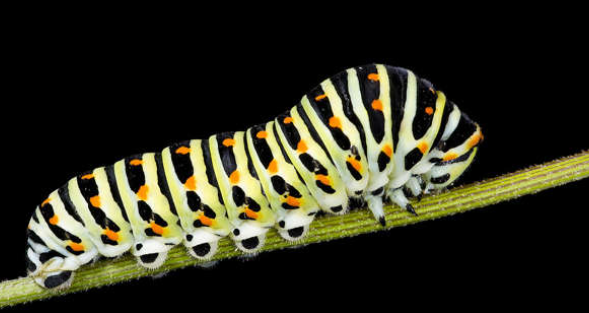Caterpillars Sense Electric Fields to Detect Predators
British scientists have found something very interesting about caterpillars: they have a sixth sense that most land animals don’t have. Through special hairs on their bodies called setae, they can pick up on electric fields with this sense, called electroreception. The study, which was published in the Proceedings of the National Academy of Sciences, looked at four types of caterpillars: the cinnabar moth, the rare vapourer moth, the European peacock butterfly, and the common wasp.
What is Electroreception?
Animals that live in water or on land often have electroreception, which helps them avoid being eaten or protected. Recently, research before 2013 uncovered that certain arthropods, including bumblebees, hoverflies, and spiders, also demonstrated this capability. However, unlike the caterpillars that were studied, these land-based arthropods do not use electroreception as a defense against predators.
Research Findings and Methodology
Researchers did a study where they used a live electrode with a fluctuating voltage of 180 Hz to simulate how a wasp would approach a prey animal. Caterpillars’ reactions included flailing and coiling, which are signs of stress that were not seen when they were in settings that were not electrified. The results showed that the setae on caterpillars reacted most strongly to frequencies around 220.3 Hz. This is very close to the frequencies of many predatory insects’ wings, which suggests that the caterpillars may have evolved to protect themselves.
Significance of the Research
This find not only helps us understand how caterpillars’ senses have changed over time, but it also helps us learn more about how insects behave and adapt. A key expert, says that this change in the senses probably happened because of strong pressure from predators. Additionally, the study shows that even though caterpillars use electroreception as an extra sense in addition to their other senses, things like sensory pollution from man-made sources might make it harder for them to find predators.
Month: Current Affairs - May, 2024
Category: Agriculture Current Affairs • Science & Technology Current Affairs








